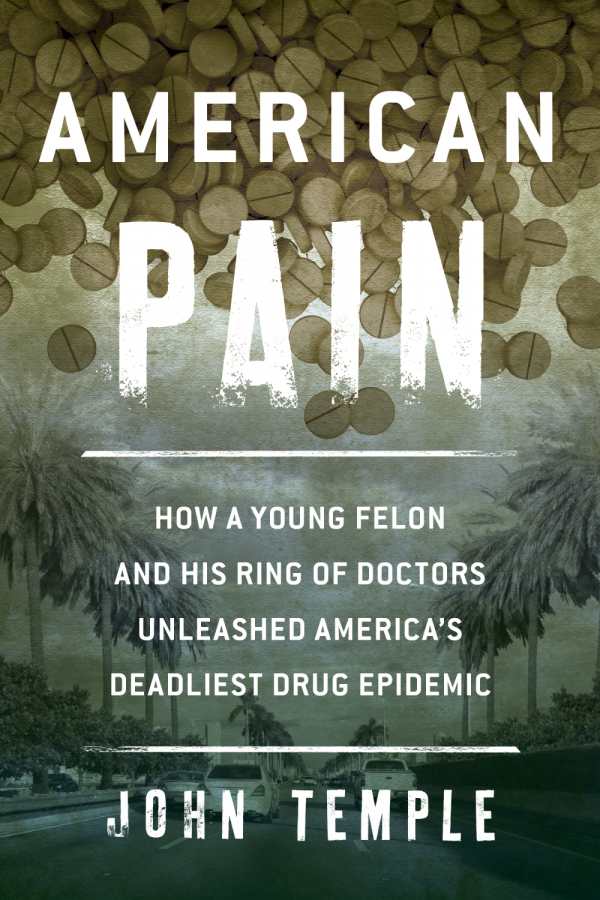American Pain
How a Young Felon and His Ring of Doctors Unleashed America’s Deadliest Drug Epidemic
- 2015 INDIES Winner
- Gold, True Crime (Adult Nonfiction)
An example of what can happen when individuals, companies, and politicians place their own interests before simple ethical considerations, American Pain is a cautionary tale of the finest sort.
In his masterful nonfiction book American Pain, John Temple lays bare the perfect storm of lax regulation, aggressive marketing, greed, and addiction that created an opioid epidemic.
Opioid painkillers, best known by the brand name OxyContin, reached unprecedented levels of sales in the late 2000s. But how they reached that level is a sordid and fascinating story, detailed in both small scope and large by Temple, an associate professor of journalism at West Virginia University’s Reed College of Media, and author of two previous nonfiction books.
Temple lays out the tale of Chris George and Derik Nolan, two street-smart young men whose previous brushes with the law caused them to leap at the chance for a “legitimate” business running a pain clinic, dispensing massive quantities of addictive drugs, with a series of doctors as their willing accomplices. Because of Florida’s loose regulations, George and Nolan created a massively profitable business marketing their company, named “American Pain,” to addicts—particularly those from Kentucky, who happily made the long journey to get their fix without hassles.
American Pain is a study in societal neglect—although George and Nolan are clearly culpable, Temple also explains the financial motivations of the drug companies that manufacture opioids, and their efforts to comply with the law while consistently increasing the number of pills produced and sold.
Temple offers a pharmacist’s frank analysis of oxycodone as compared to heroin:
One, OxyContin was legal. Two, it was pharmaceutical-grade—you knew exactly what was in it, unlike a bag of heroin bought on the street. Other than that, oxycodone addiction and heroin addiction were the same thing.
Temple’s writing is propulsive, and does justice to the many legal and ethical gray areas of the story. The fates of George, Nolan, their staff, and the doctors involved with American Pain are all satisfyingly recounted, along with the lasting impact of one of the overdose deaths directly attributable to them. An example of what can happen when individuals, companies, and politicians place their own interests before simple ethical considerations, American Pain is a cautionary tale of the finest sort.
Reviewed by
Peter Dabbene
Disclosure: This article is not an endorsement, but a review. The publisher of this book provided free copies of the book to have their book reviewed by a professional reviewer. No fee was paid by the publisher for this review. Foreword Reviews only recommends books that we love. Foreword Magazine, Inc. is disclosing this in accordance with the Federal Trade Commission’s 16 CFR, Part 255.

